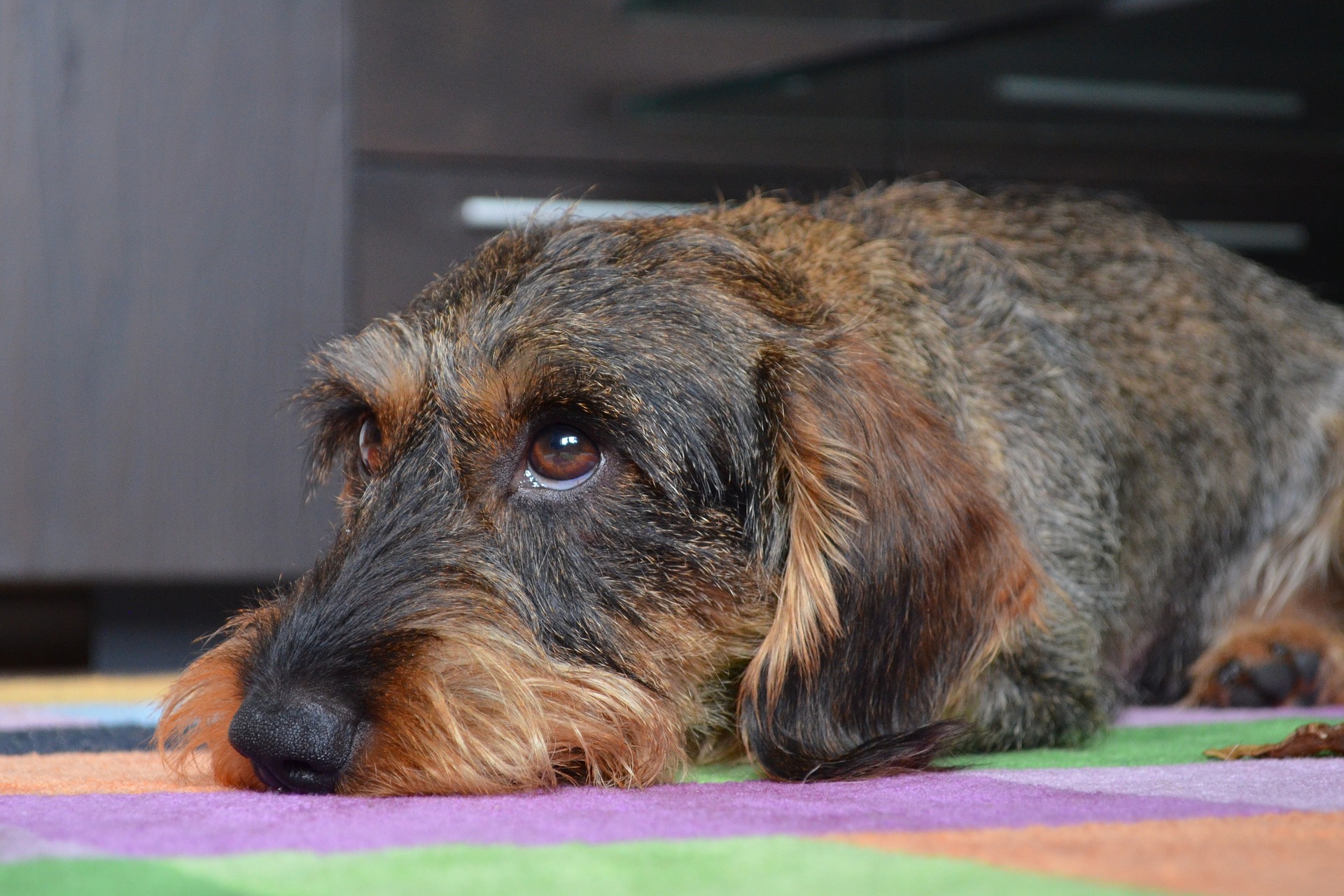It may not occur to you to “baby-proof” your home to keep your dog safe, but there are a surprising number of things you might have lying around your house that can be poisonous, and even fatal, if ingested.
Dogs are notorious scavengers, especially if they get bored when they are left home alone, and they will eat the most surprising things if given half a chance.
Here is a list of common household items that are poisonous to dogs.

Foods
While dogs can eat some people foods safely, there are a variety of foods that can make your dog very sick. Some of these foods can kill your dog, even in relatively small amounts.
Grapes, raisins, and currants
Onions, garlic, or chives
While some believe that garlic is safe in very small doses, it doesn’t take too much to become toxic.
Chocolate
It tastes delicious, but it can kill your dog. The darker the chocolate, the more toxic it is.
Coffee, alcohol, or caffeine
Avocadoes
Macadamia nuts
Xylitol
An artificial sweetener found in “sugar-free” gum and food
Yeast dough
Cooked bones
While they aren’t poisonous, they can splinter and cause choking or digestive problems
Raw meat
While some dogs thrive on a raw diet, others may be susceptible to food-borne illnesses like salmonella.
Always be sure to keep all food away from your dog when he isn’t being supervised and advise your guests not to feed your dog any table scraps. Begging could become deadly!
Medications
Dogs are curious creatures who may be tempted to eat anything small enough to fit in their mouth, including random pills on the floor. Boredom or curiosity could even inspire a dog to chew open a full bottle of medications and eat the contents.
Whether it’s human medication or dog medication, it can be deadly to your dog. Always keep medications locked up where your dog can’t access them, and make sure your dog is good with “leave it” so that you can pick up any pills you accidentally drop before your dog rushes to scarf them up.
Chemicals
You’ve probably never given much thought to all the chemicals you keep under your kitchen or bathroom sink or that may leak out of your car while it’s parked in the driveway. All chemicals should be kept far away from dogs, preferably in cabinets that have been child-proofed.
Here are some common household chemicals that can be toxic:
- Insecticides
- Rodenticides
- Herbicides
- Fertilizer
- Antifreeze
- De-icers, including some sidewalk salt
- Detergent, fabric softener, and dryer sheets
- Cleaning products
- Heavy metals (paint chips and pennies are common hazards)
Miscellaneous
Of course, this list keeps going. Here are even more items you may have around your household that may be toxic to your dog.
Batteries
Just because you wouldn’t think to chew on a battery doesn’t mean your dog wouldn’t consider it.
Plants
While some plants are safe and edible, many plants are toxic to dogs. Click here for a comprehensive list of toxic plants.
Children’s toys
Human toys aren’t meant to be chewed up and may contain – or become – small choking hazards. They can also cause intestinal blockages.
Rawhide treats
Rawhide is dangerous in a couple of different ways – not only can it harbor bacteria once it’s been chewed on for a while, but it can become a choking hazard. Bully sticks are usually considered a safer chewing option.
Conclusion
While some people may consider crates and kennels akin to putting their dog in prison, a dog that is properly introduced to a crate will see it is a safe place – which in the long run will keep your dog safe when you aren’t home to keep an eye on him.




